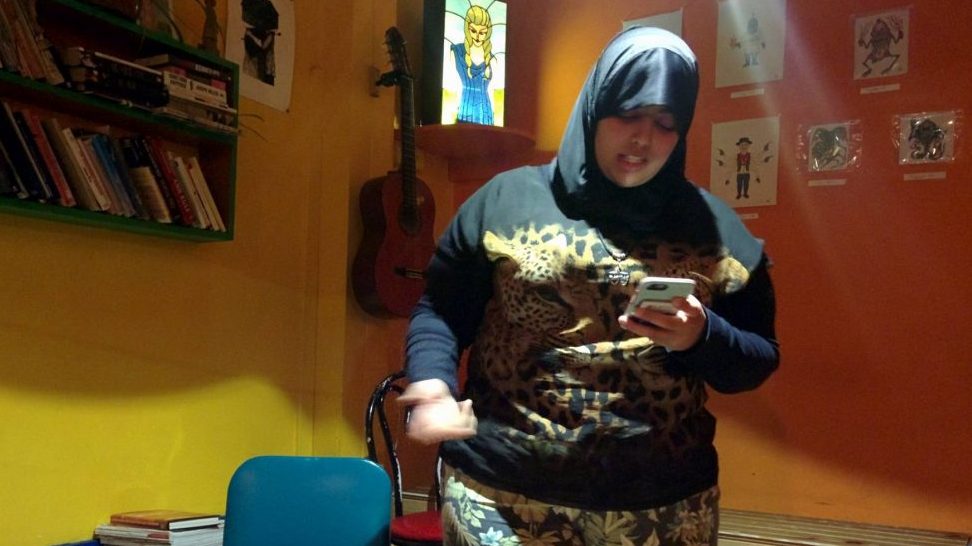Art
Good Food Emporium puts poetry on the menu
'The most important part of this kind of event is listening'

caption
Mariam Al-Nasrallah performs an untitled poem about shyness.
caption
Mariam Al-Nasrallah performs an untitled poem about shyness.The sound of finger snaps fill the air as young poets recite their inner thoughts and ideas.
Some shake sheepishly on stage while others stand tall and accent every beat with raw emotion, but no matter their nerves, they all leave the stage with a smile.
On Wednesday night, the Good Food Emporium opened its doors to spoken word poets. Organizer Blair Herrell invited all in attendance to share their poetry, regardless of the content, or to listen and relate to the art.
He organized the event with the intention of gathering “as many people who are into prose, spoken word and poetry as (he) could in one space” and to introduce others to the form, he said.
Herrell, who DJs electronic music around Atlantic Canada, chose to hold his first spoken word event at the emporium because of his familiarity with the space, as a frequent customer.
The restaurant normally closes at 5 p.m., but reopened at 7 p.m. for the event.
Gavin Mackie, an artist who works odd jobs, came to share a piece of his poetry.
“I was interested in automatic writing and nonsense, just delighting in words and the sounds and associations you don’t make,” says Mackie. “Using word combinations, it’s nonsense.”
Inspired by K-Billy, the DJ from Quentin Tarantino’s 1992 film Reservoir Dogs, Mackie performed a piece using made-up musician names, song titles and record companies in the style of a radio announcer.
“Oldsmobile featuring Man Hands and the Spit Trio: Pan Handling Only Works Sometimes. 2002. Oh my Jesus Records,” Mackie read as audience members laughed and applauded.
Mackie describes spoken word poetry as a simple form of art, an “everyman’s form,” that anyone is capable of writing. He also believes this form of art can be therapeutic given its often serious material.
“In some cases, some people come right out and say right from the soul what they wanted to say,” he said.
“Just to be able to dump on a whole room of people, get it off their chest. You get to hear people say things that you only see on TV. These are real people with real experiences. That’s why I like it.”
About a dozen people took the stage, performing for a nearly full restaurant. Some shared comedic pieces like Mackie, while others shared more personal poems with themes such as sexual assault, self-harm and being denied acceptance to college.
Herrell believes spoken word is not just for the speakers but for the audience as well. He says it cultivates good listening skills and people can relate to the experiences.
“It’s definitely an event for listeners as much, if not more, than for speaking.”

